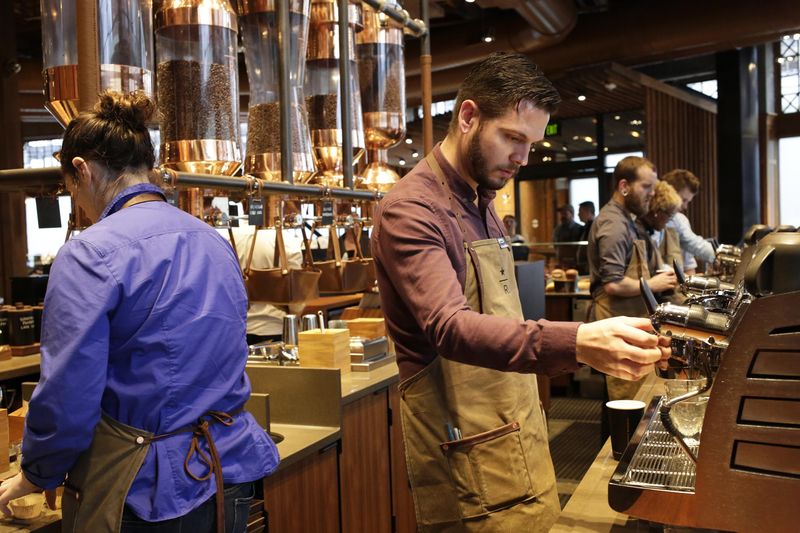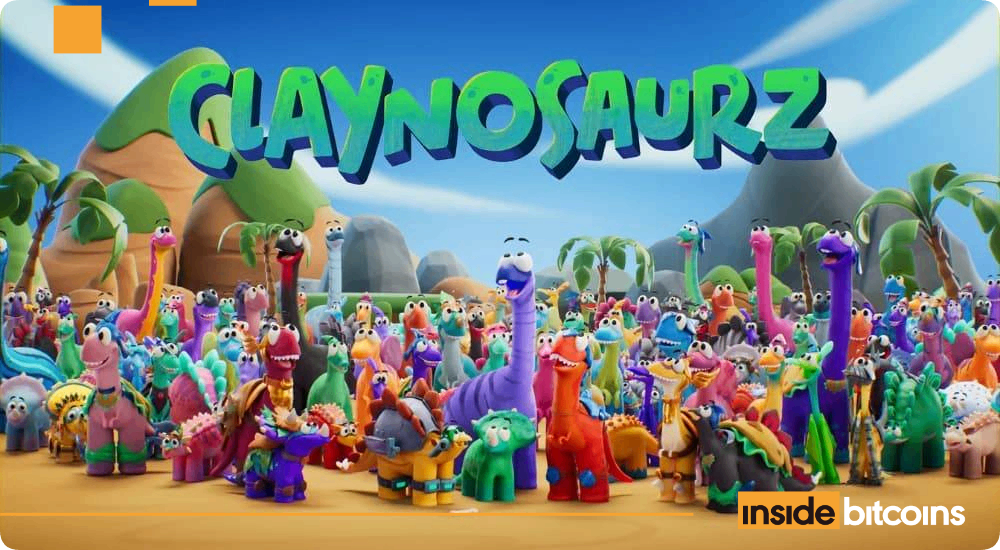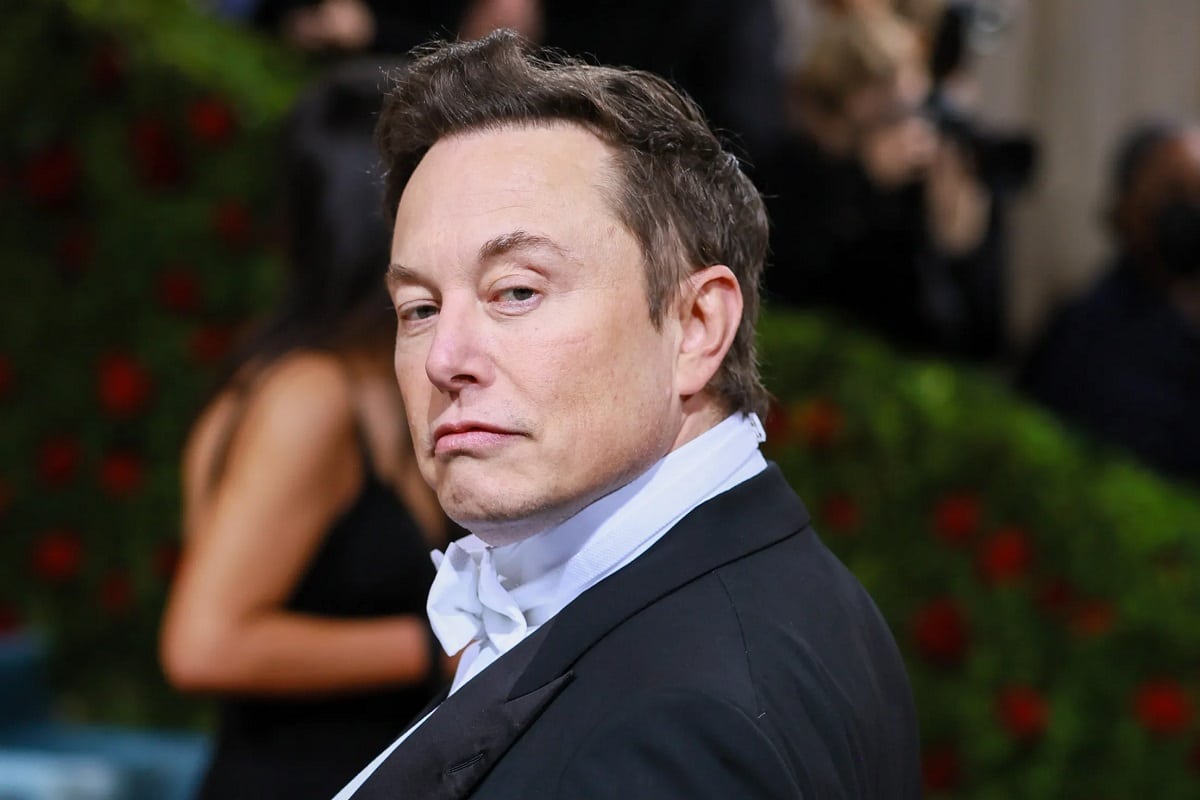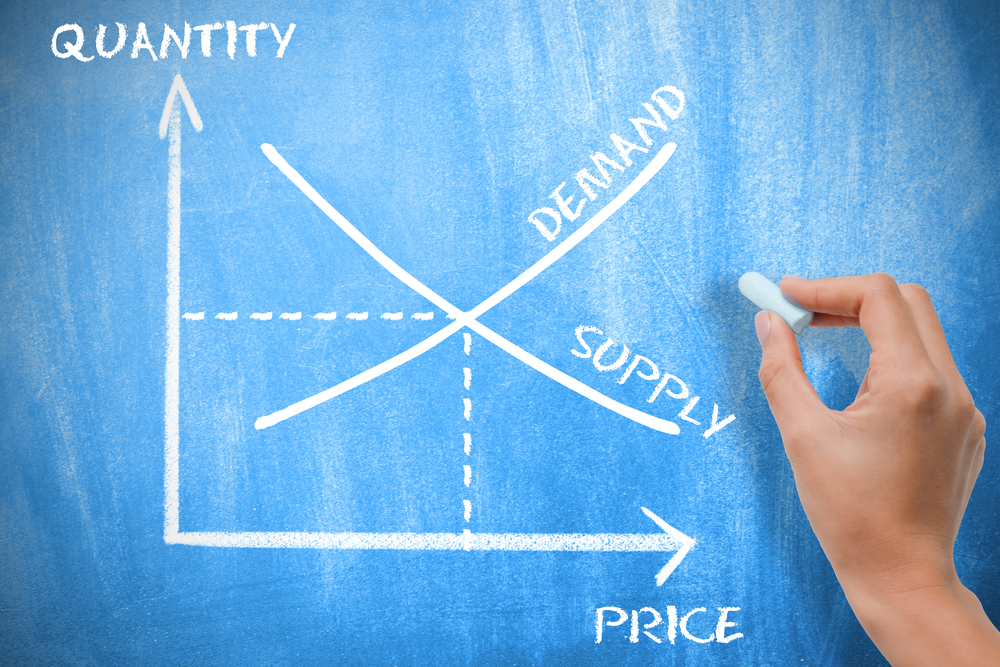Exclusive Subscriber+Member Interview — In the wake of a Kremlin decision to halt a U.N.-brokered Black Sea agreement, which allowed Ukraine to export tens of millions of tons of grains and oilseeds, world attention is now increasingly focused on a key Russian partner — and the deal’s biggest beneficiary: China, a longtime buyer of Ukrainian grain, accounts for nearly one quarter of the initiative’s total exports.
“In the context of various threats to food security in China, sources of import are very important,” said Caitlin Welsh, Director of the Global Food and Water Security Program at the Center for Strategic and International Studies (CSIS). “This one included.”
In a bid to both counter U.S. influence and cement an economic partnership in which Beijing also serves as Moscow’s biggest buyer of oil and gas, Chinese President Xi Jinping met with Russian counterpart Vladimir Putin in March. And yet this week, given Beijing’s agricultural ties with Kyiv, Western officials now say they are looking to China for help.
“Russia’s refusal to renew the Black Sea Grain Initiative will result in a blow to the global food market, lead to rising prices and further aggravate the global food crisis,” Patricia Flor, the German ambassador to Beijing, reportedly said. “We appeal to China to support the extension of the deal and talk to Russia. China, which is also a food importer and recipient of Ukrainian grain, can contribute to stabilize the global food market.”
The deal, brokered by the U.N. and Turkey a year ago, allowed Ukraine to bypass a Russian blockade of Black Sea ports, and is considered critical in stabilizing global food prices and delivering grain to developing economies. But Russia has long held that western sanctions have stymied parallel agreements that involve its own agricultural exports, with Kremlin spokesman Dmitry Peskov telling reporters that Russia would not renew the Black Sea deal.
U.S. Secretary of State Antony Blinken called the decision tantamount to a “weaponizing [of] food,” which it uses in its war against Ukraine.”
“It will make food harder to come-by in places that need it and have prices rise,” he added.
Analysts indeed say they expect higher food prices and broader food insecurity as a result of Moscow’s decision. And yet the effects, they add, may also seem comparably muted to past disruptions.
“It’s not that it matters less,” noted Welsh. “But it’s a different impact than it was when Russia first invaded Ukraine. When Russia first invaded and exports ground to a halt, suddenly there was an enormous shock to global agricultural markets, and we saw UN food price index representing global food prices hit an all-time high due to that sudden impact on Ukraine’s exports … [Now] it’s something that markets could, in effect, anticipate.”
The Cipher Brief sat down with Welsh in an extended interview to evaluate the broader effects of the Kremlin’s decision, its implications for global food security, and potential paths forward. This interview has been lightly edited for clarity.
Caitlin Welsh, Director, Global Food and Water Security Program, CSIS
Caitlin Welsh is the director of the Global Food and Water Security Program at the Center for Strategic and International Studies (CSIS), where she analyzes the drivers and consequences of food and water insecurity around the world, including for U.S. national security. Her specific areas of focus include the impacts of Russia’s war in Ukraine on global food security and nutrition, food insecurity in the U.S. military, and the coherence between U.S. global water security policy and U.S. global food security policy. Prior to joining CSIS, Ms. Welsh served for over 12 years in the U.S. government, including at the National Security Council and National Economic Council as director for global economic engagement with responsibility for the G7 and G20, and at the U.S. Department of State’s Office of Global Food Security, where she served as acting director..
The Cipher Brief: Can you provide some context about this grain deal? And how is the Kremlin’s move this week different from past disruptions?
Welsh: Why it matters is, of course, that Ukraine is a major producer of a number of agricultural commodities. The more Ukrainian product on the market, the better it is for global prices, which has positive effects for food-importing countries, and the many countries that rely on Ukraine for agricultural imports. Why it might matter a bit less … It’s not that it matters less, but it’s a different impact than it was when Russia first invaded Ukraine. When Russia first invaded and exports ground to a halt, suddenly there was an enormous shock to global agricultural markets, and we saw UN food price index representing global food prices hit an all-time high due to that sudden impact on Ukraine’s exports.
At this point, we’ve had a stoppage in Ukraine’s agricultural sectors, agricultural exports, a resumption starting in August of last year, and exports ramped up a little bit, and then they slowly were declining. We had 127 ships approved for export from Ukraine in January. Only 10 ships approved so far in July. We’ve seen, again, whereas Russia’s invasion was a sudden halt in exports, this represents a gradual slowdown in exports from Ukraine. And it’s something that markets could, in effect, anticipate. We saw wheat futures increased by over 3% upon Russia’s announcement, but my understanding is that markets have settled out largely because they were anticipating this decision from Russia.
The Cipher Brief: If markets have baked in this stoppage, the next question is whether Ukraine itself has done something similar in its planning. In other words, what export alternatives has Kyiv been exploring?
Welsh: It is important to recognize Ukraine’s agricultural plumbing, its agricultural infrastructure is oriented south, to the Black Sea. Its producing regions all over the country [point] south to numerous ports along the Black Sea. Ukraine was able to pivot and export a small proportion of its grains through other routes. But there were bottlenecks of many types that Ukraine experienced.
Earlier this year, [several] European countries through which Ukraine was exporting its grains weren’t equipped to handle the volume of grain that they were receiving from Ukraine, [and] had a glut of grain in their own countries, which depressed domestic prices, caused grievances among farmers, and [contributed to] domestic political strife. There’s no perfect solution, no perfect alternative for Ukraine right now, because its agriculture sector is oriented for exports through the south.
Looking for a way to get ahead of the week in cyber and tech? Sign up for the Cyber Initiatives Group Sunday newsletter to quickly get up to speed on the biggest cyber and tech headlines and be ready for the week ahead. Sign up today.
The Cipher Brief: This is not the first time this has happened. Russia withdrew briefly back in November. But exports resumed following conversations with Turkish President Recep Tayyip Erdogan. Conversations are again underway, with President Vladimir Putin planning a trip to Turkey next month. How does Turkish pressure now play into this deal?
Welsh: When it comes to Turkey’s role, it’s important to put all of this in the context of Russia’s war in Ukraine. Russia, of course, was not pleased with Turkey’s decision to remove a roadblock to Sweden’s accession into NATO. It’s possible that Erdogan has slightly diminished influence over President Putin at this point. Not that that can’t be regained, but that’s an important point of context. Turkey has proven to be a successful broker, not just in helping get this deal in place last July, but at all points at which Russia was either threatening to pull out of the deal or did pull out of the deal. I’m hopeful that President Erdogan can continue to play that role. It’s also important to remember that countries that are benefiting from exports under the Black Sea Grain Initiative also are putting pressure on Russia. China has [already] issued a statement condemning Russia’s decision as soon as it announced it. China alone has imported 25% of grains exported under the Black Sea Grain Initiative, so China is the major beneficiary by far under the Black Sea Grain Initiative so far. But many other countries are benefiting, low and middle-income countries, and high-income countries, all of which can be putting pressure on Russia.
The Cipher Brief: Speaking of China, given its ties to Ukrainian grain, how does this week’s move play into that so-called “no-limits” friendship between President Xi and President Putin?
Welsh: China alone has imported nearly 25% [of the initiative’s] grains exported over the past year or so. And in the context of various threats to food security in China, sources of import are very important, this one included. It’s worth underscoring the fact that China made a public statement against Russia’s decision. But it’s really important to emphasize the importance of all other countries, particularly low and middle income countries, that are benefiting from the Black Sea Grain Initiative, particularly countries in Africa. Africa has been a venue onto which the struggle between Russia and the West has been playing out. Russia, throughout the entire length of this war, has understood … President Putin has always understood the importance of Russia’s agriculture sector to Russia’s political influence. Agricultural exports are a major source, if not the major source, of Russia’s soft power. One of the main reasons that Russia wants to curtail Ukraine’s exports of agriculture products and effectively decimate Ukraine’s agriculture sector is so that Russia itself can make up for the shortfall in Ukraine’s agricultural exports, particularly in countries relying on the Black Sea for their imports in Africa and the Middle East.
These countries are ones that, on the one hand, Russia is hoping to have more influence over through its increased exports. On the other hand, to the extent that they are importing still from Ukraine, these countries are countries that are not pleased with Russia’s decision right now, and that can also be putting some diplomatic pressure on Russia for its decision.
The Cipher Brief hosts expert-level briefings on national security issues for Subscriber+Members that help provide context around today’s national security issues and what they mean for business. Upgrade your status to Subscriber+ today.
The Cipher Brief: In that sense, and given Putin’s now questionable sway over Wagner group mercenaries in Africa, are there growing concerns in the Kremlin about Russia’s potentially waning influence on the continent?
Welsh: That’s interesting to the extent that Prigozhin’s own activity in African countries might be undercut. All of this speaks to the same point, which is that Putin has always, since he took power, and especially since he waged a full invasion of Ukraine, understood Russia’s agriculture sector as the major source of soft power and influence. It doesn’t constitute the same source of Russia’s GDP as it does for Ukraine, but it’s the main source of soft power, and it’s the main way through which Russia is able to influence those countries that are … the fence sitters. They’re wary of crossing Russia because they know that if Russia were to limit these countries’ access to food imports, that would have immediate impacts on food prices, food security domestically, which has a very quick through line to social unrest and political stability in these countries.
The Cipher Brief: Can you parse the framing of this deal in how its been reported? On one side, we’re seeing warnings of potential famines in low-income countries as a result of the Russian pull-out. On the other, there’s been an effort to minimize reporting of its impacts. President Putin said in recent weeks that only about 3% of Ukrainian exports were going to so-called poor countries. There’s been a lot of questions about the accuracy and framing of that number. Can you lend some clarity?
Welsh: I’ve seen exaggerated headlines. I’m actually looking at data from the UN, and [the Kremlin’s line] is consistent with what the UN is reporting, that 3% of exports have gone to low income countries. But Russia, by using that number, is trying to insinuate that only 3% of exports are going to food insecure populations. That’s not the case whatsoever. You should also look at the exports that are going to lower middle income countries, all middle income countries, and all countries generally. Because to the extent that Russia is disallowing Ukraine’s exports on global markets, it’s influencing global food prices which affect not just people living in low income countries, they affect low income populations in every country around the world. Russia is manipulating that statistic. Russia is [also] inaccurately portraying the purpose of this deal. The purpose of the deal was not to direct Ukraine’s exports to food insecure countries. The purpose was to simply restart Ukraine’s, or to get Ukraine’s agricultural exports on global markets, and through that, ease pressure on global food prices. And that is something that it has done. For Russia to say that the purpose of the deal was only to benefit the lowest income countries, and it hasn’t done that, so it hasn’t worked, that’s Russia misstating the purpose of the deal to begin with.
It’s also important to note that the World Food Program has purchased 80% of its wheat from Ukraine over the past year. To the extent that non-participation in this deal increases prices for World Food Program, that increases the bottom line for the World Food Program. It needs to raise more funding. It has less funding for operations around the world, in food security crises around the world. Through that mechanism too, non-participation is affecting food insecurity. I want to say too though, I found that some headlines are saying that things like non-participation is risking famine in many places around the world. And to me, the point that’s being insinuated there is that famine would be caused by lack of access to Ukraine’s exports. And that that’s not the case. What we’re looking at is there are places that are already experiencing extreme levels of food insecurity, and for those places, for those humanitarian hotspots, if you have the case that operations from World Food Program need to be scaled back because of effects of the war, in those places, fewer people are going to be benefiting from World Food Program, and more people would be suffering from the effects of famine or near famine. The headlines can belie a situation that’s actually much more complex.
The Cipher Brief: To sum up, given ongoing conversations between Ankara and Moscow, as well as those likely being had between Moscow and Beijing, what are you looking for in coming days, weeks, and months, with regard to this deal?
Welsh: I’m hopeful that this suspension will be short-lived, just as the suspension in November was. I’m hopeful that reports that we’ve seen so far about President Erdogan, for example, saying that he was optimistic about President Putin rejoining the deal, I hope that those bear fruit. I’ll be very curious to see under which terms Russia decides to, quote-unquote, rejoin. When it comes to a decision by Russia, I think that this could ultimately be another instance of Russia flexing its muscles and showing the influence that it can have over Ukraine’s own agriculture sector and on global food security.
In the longer term though, we really need a solution that doesn’t hinge on the decision of a nuclear power that’s waging a war of choice every two months, or two to three to four months. There needs to be a solution in place that’s not at the whim of President Putin. And so I’m looking for, in the long term, just a longer term option. And that could come in the form of Ukraine solidifying other export routes. It could come because of diplomatic pressure from countries that are importing from Ukraine, including China. It could come in a number of forms. We need a long-term solution.
Last point that I’ll make is that Russia’s decision today, based on this purported fact that Russia is suffering under the Black Sea Grain Initiative must be understood in the context of the effects of this war on Russia’s agriculture sector and on Ukraine’s agriculture sector. What we’re seeing is that due to favorable growing conditions, Russia’s, looking at wheat only, wheat production this year compared to pre-war is 13% higher. Russia’s exports this year compared to pre-war are 44% higher.
Looking at Ukraine though, due to Russia’s deliberate attacks across all aspects of Ukraine’s agricultural sector, its production is down by 47% and exports are down by 44%. So the same amount by which Russia’s exports have increased, Ukraine’s exports are decreasing, and also given the fact that Russia already produces a greater volume of most grains than Ukraine does. So Russia has very little to be complaining about. As I’ve said to others, I think that Russia is playing victim in a crisis of its own creation. Russia absolutely understands that its own agriculture exports are a source of soft power. Very true. It also understands that Ukraine’s agricultural exports are a major source of soft power, but also of revenue. Pre-war ag exports made up 40% of Ukraine’s GDP. And so the more Russia can curtail Ukraine’s agriculture exports, the less revenue Ukraine is getting in wartime, and the more influence Russia can be yielding around the world. That is the bottom line to Russia’s decisions right now.
Read more expert-driven national security insights, perspectives and analysis in The Cipher Brief because National Security is Everyone’s Business
















